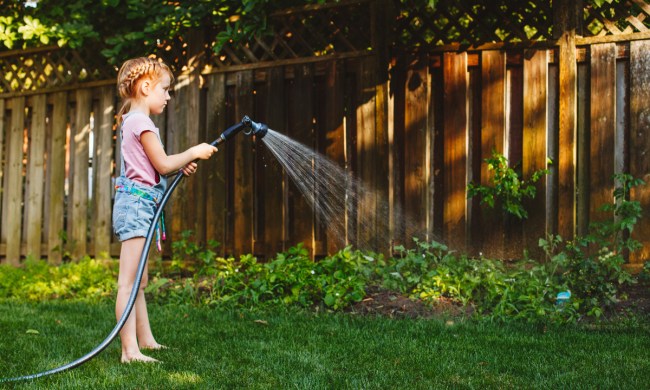For many parents, one of the hardest parts of their children growing older is that they stop believing in those magical tales they’ve been told. They start to question if Santa Claus and the Easter Bunny are real, leaving parents to think quickly on their feet! If your child has asked, “Is the tooth fairy real?” — we have the backstory to give them. Whether you want to keep the fairy tale alive or give them the hard truth, we have your options covered.
If parents want to tell the truth

If your parenting style is to straight up tell the truth when a child asks you about something in the make-believe world, then drop this knowledge on your kiddo.
Short historical background
Around the 10th to possibly 12th century, the Norse people recorded the “tand-fe” tradition of adults paying children for their first lost tooth. For them, baby teeth held special powers that would protect them, especially if they wore a necklace of baby teeth on the battlefield.
When the tooth fairy was invented
The more traditional form of the tooth fairy we know today comes from a French fairy tale involving mice, called La Bonne Petite Souris (The Little Mouse). The story takes place in the 1800s and involves a mouse taking a child’s tooth in exchange for a coin.
The first time the tooth fairy was mentioned in the U.S.
Here in the U.S., parents should thank Lillian Brown for being able to use the tooth fairy to get their kids to brush their teeth. Brown’s article, published in the Chicago Tribune in 1908, first introduced the idea of a fairy that would gift your child 5 cents for each pulled baby tooth.
If parents want to keep the magic going

If you want to preserve your child’s innocence a little longer or think they are too young to have their soul crushed, sprinkle a little magic on them with these fairy facts.
What the tooth fairy does with the teeth
While each parent has their own preference for what to do with the teeth they sneak from under their child’s pillow, here’s what to tell when they ask what the tooth fairy does with the teeth.
The tooth fairy uses them for a variety of things
- Plants them in the garden where they grow into plants and flowers
- Uses them to build/add additions to the fairy’s house
- Turns them into stars in the sky
Where the tooth fairy lives
Children always want to know where magical creatures live. While no one knows where the exact address is; the place is a magical world called Fairyland.
Names of the footh fairy in other countries
For fun, give your children a rundown of what the tooth fairy is called in other countries.
- Tannfe in Norway
- Tandfe in Sweden
- Tonn aevintyri in Iceland
- Fada dos dentes in Portugal
- Zahnfee in Austria, Germany, and Switzerland
It doesn’t have to be all or nothing

Many parents think that if they tell their child the truth about the tooth fairy, they must explain the truth about all those other magical traditions they have, but that couldn’t be further from the truth. It’s OK to tell your child the tooth fairy isn’t real while maintaining your Christmas and Easter traditions or any other magical tradition you may have.
Unless your child is asking about Santa and the Easter Bunny or any other magical figure at the same time they’re asking about the tooth fairy, there’s no need to have those conversations. It’s up to parents to decide if and when they want to explain to their children the secrets behind these fun holidays, but if they aren’t asking then don’t feel that you need to bring it up.
Keeping magical traditions alive is fun (and adorable) when your children are little. As your kids get older, you have to decide what to tell them about those things. So, when your child asks, “Is the tooth fairy real?” — you’ll have the information to pick which way to explain it to them.




